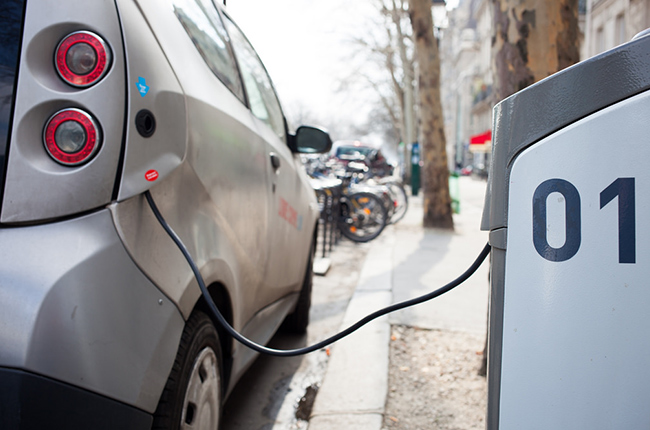
Just recently, a groundbreaking discovery in the field of electric batteries was achieved. The reality of fast-charging phones, laptops, and even full sized electric cars could come to us sooner than what we expected.
The breakthrough was from a research led by the University of Surrey and Augmented Optics Ltd. in collaboration with University of Bristol. The study resulted to the discovery of new materials that offer an alternative to battery power, and is proven to be between 1,000-10,000 times more powerful than existing supercapacitors.
This development revolutionizes the average 6 to 8 hours charging time of electric cars, shortening the recharge time down in just minutes. Now, charging your electric car will seem like refueling a gasoline-engined regular car. Moreover, it may also lead to a future possibility of full-charging your gadgets in just a matter of seconds.
In fact, it is known that existing supercapacitors are already used in China’s buses, but with only limited travel distance due to needed charging for every 2 to 3 stops. The new super-fast charging battery, on the other hand, allows a travel-duration of continuous 20 to 30 stops without having the need to recharge.
The project was provided with a platform in development through Dr. Donald Highgate’s research of soft contact lens materials. Then, he later teamed up with principal investigators Dr. Ian Hamerton and Dr. Brendan Howlin to make the materials electrically active.
More so, Augmented Optics CEO Jim Heathcote stated that we are not looking at a technology that will hit reality in 10 to 20 years. Instead, he concluded,
We're talking about potentially getting into prototyped devices within a matter of months."
Existing EVs are powered with lithium-ion battery that was first commercialized by Sony in 1991. However, the said battery doesn’t have enough temperature resistant and degrades over time. This is because lithium-ion batteries store energy in a chemical reaction.
In contrary, supercapacitors stores on the surface of the material, providing longer life span and faster charges. Thus, allowing it to perform much better in low temperature than an ordinary chemical battery.
While our faith for this technology lies in Heathcote’s statement about its quick development, the world was assured with his follow-up statement, “We are now actively seeking commercial partners in order to supply our polymers and offer assistance to build these ultra-high energy density storage devices.”
Latest News
-
The Nissan N7 is out, and a hybrid Frontier Pickup is coming next / News
Nissan has introduced two new models at Auto Shanghai 2025: the all-electric N7 sedan and the all-new Frontier Pro plug-in hybrid pickup. The N7 is now available in China, while the Frontier...
-
Test drive a Hyundai, get free accessories and services through Hyundai’s Sales in Service Test Drive Promo / News
Hyundai is giving customers more than just the driving experience with its Sales in Service Test Drive Promo.
-
The new Dongfeng Warrior M817 is built for battle, but is it bound for PH? / News
Dongfeng just introduced the Warrior M817 at the 2025 Auto Shanghai show. It's an electric SUV that combines a tough body with new smart tech. It's built for all kinds of roads and might jus...
Popular Articles
-
Cheapest cars under P700,000 in the Philippines
Jerome Tresvalles · Sep 02, 2024
-
First car or next car, the Ford EcoSport is a tough package to beat
Jun 18, 2021
-
Car Maintenance checklist and guide – here’s everything you need to know
Earl Lee · Jan 12, 2021
-
Most fuel efficient family cars in the Philippines
Bryan Aaron Rivera · Nov 27, 2020
-
2021 Geely Okavango — Everything you need to know
Joey Deriquito · Nov 19, 2020
-
Family cars in the Philippines with the biggest trunks
Sep 20, 2023
-
Head to head: Toyota Rush vs. Suzuki XL7
Joey Deriquito · Oct 28, 2020
-
Why oil changes are important for your car
Earl Lee · Nov 10, 2020
-
2021 Kia Stonic — What you need to know about it
Joey Deriquito · Oct 16, 2020
-
Top 7 tips for buying a used car in the Philippines
Joey Deriquito · Nov 26, 2020



